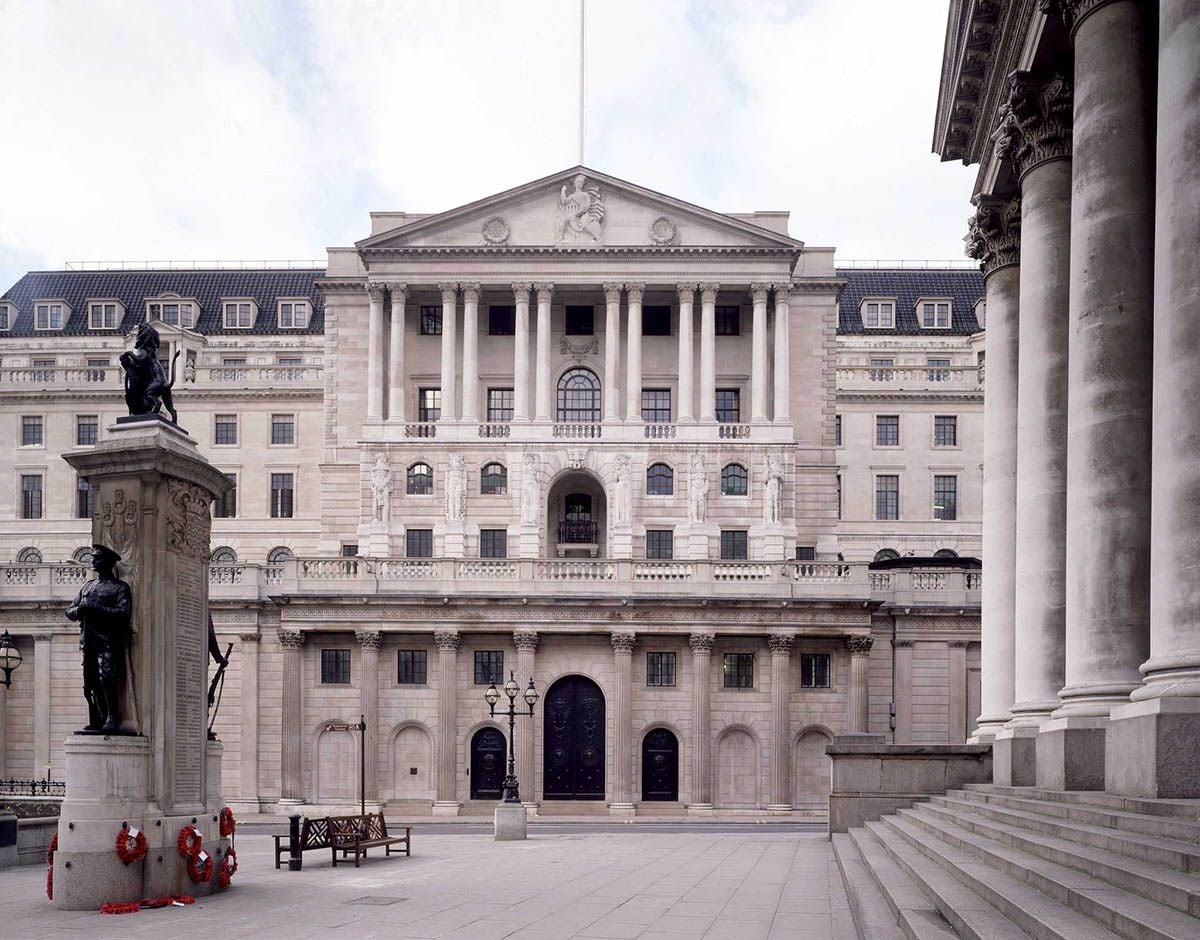Bank of England Sits On Hands in December Pending Outcomes On Brexit, Virus Restrictions
- Written by: James Skinner

© Bank of England
The Bank of England (BoE) sat on its hand in December when it left interest rates and the parameters of its quantitative easing programme unchanged pending the outcome of Brexit trade talks and decisions on the government's so-far failed containment of the coronavirus.
Monetary Policy Committee members voted to leave Bank Rate unchanged at 0.10% after judging that "the existing stance of monetary policy remains appropriate," in line with market expectations.
BoE offcials will also now begin buying an additional £150bn of UK government bonds as part of its quantitative easing (QE) programme following a November decision to increase its scale, while also continuing to deliver on its June pledge to buy up another £100bn of government bonds.
The idea is to ensure not only that the government is able to fund itself through the pandemic but also to keep borrowing costs at new lows, cheapening the cost of new money not only for HM Treasury but also for companies and households given the influence that government yields have on interest rates charged across the economy.
In a similar vein the BoE remains content with its target to hold a £20bn stock of Sterling denominated corporate bonds, which is intended to further lessen the burden of financing costs for commercial firms, albeit that such benefits are in this instance only able to reach some of Britain's largest companies.
All together the total size of the BoE's QE programme remained at £875bn, an amount that's equivalent to more than 40% of United Kingdom GDP.
"Just as the Federal Reserve awaits news of a stimulus package, the Bank of England is stuck waiting for the Brexit negotiations to be resolved and as such have chosen to keep further stimulus on hold," says Hinesh Patel, a portfolio manager at Quilter Investors. "Andrew Bailey will need to use everything in his powers to get the economy going, but without the fiscal firepower from the Treasury it may quickly run out of room.”
The decision to leave all aspects of policy unchanged was a unanimous one with all nine members of the BoE's Monetary Policy Committee having voted for it in a meeting this week, although it comes as vast swathes of the country and its economy struggle with encumbering, yet so-far fruitless coronavirus containment measures.
When announcing the decision the bank pointedly set out a number of assumptions on which the "existing stance of monetary policy remains appropriate" judgement was formed. These include the expectation that on January 01 the UK leaves the Brexit transition period and shifts immediately to a free trade agreement with the EU as well as the assumption that current coronavirus-related curbs on activity are loosened in the New Year.
"The positive news on vaccines meant that the MPC didn’t feel the need to loosen policy any further at its December meeting today. And, as long as there is a Brexit deal, we don’t think it will need to loosen policy next year either. But if there is a no deal Brexit, the MPC may find its Christmas dinner has turned into a working lunch," says Thomas Pugh at Capital Economics. "We expect interest rates to be no higher than 0.10% for the next five years."
There remained on Thursday some scope for at least one of those assumptions to prove erroneous.
"This is likely to reduce the downside risks to the economic outlook," the BoE says, after noting success in the development of a coronavirus vaccine and its current early stage rollout in the UK.
Britain's economy suffered another 'lockdown' in November, although the pub and restaurant trades have been forced to remain closed into year-end amid ongoing high levels of new infections declared by the government each day.
December's early doors rollout of the vaccine made by Pfizer and Germany's BioNTech has stoked optimism in markets and hopes across the country that normal life may be able to resume in the near future.
However, there have long been widespread fears of shortages and production bottlenecks that could be brought to the fore in the coming weeks if the American pharmaceutical giant's difficulty in fulfilling commitments made to the U.S. government becomes a global phenomenon.
That alone could be enough to run aground the BoE's assumption that restrictions on activity could be progressively loosened in the New Year, likely necessitating fresh assistance from both the bank as well as HM Treasury.
"The MPC continues to assume—sensibly—that the U.K. will move immediately to a free trade agreement with the EU in January. Nonetheless, it gave its clearest indication yet that it would ease monetary policy further, in the event of no-deal," says Samuel Tombs, chief UK economist at Pantheon Macroeconomics. " It did not, however, mention how it would ease, if the need arose; the conclusions from its recent consultation with lenders about how to implement negative rates likely will be revealed in February."
The BoE's full policy announcement can be found here, and minutes of the Monetary Policy Committee meeting here.



